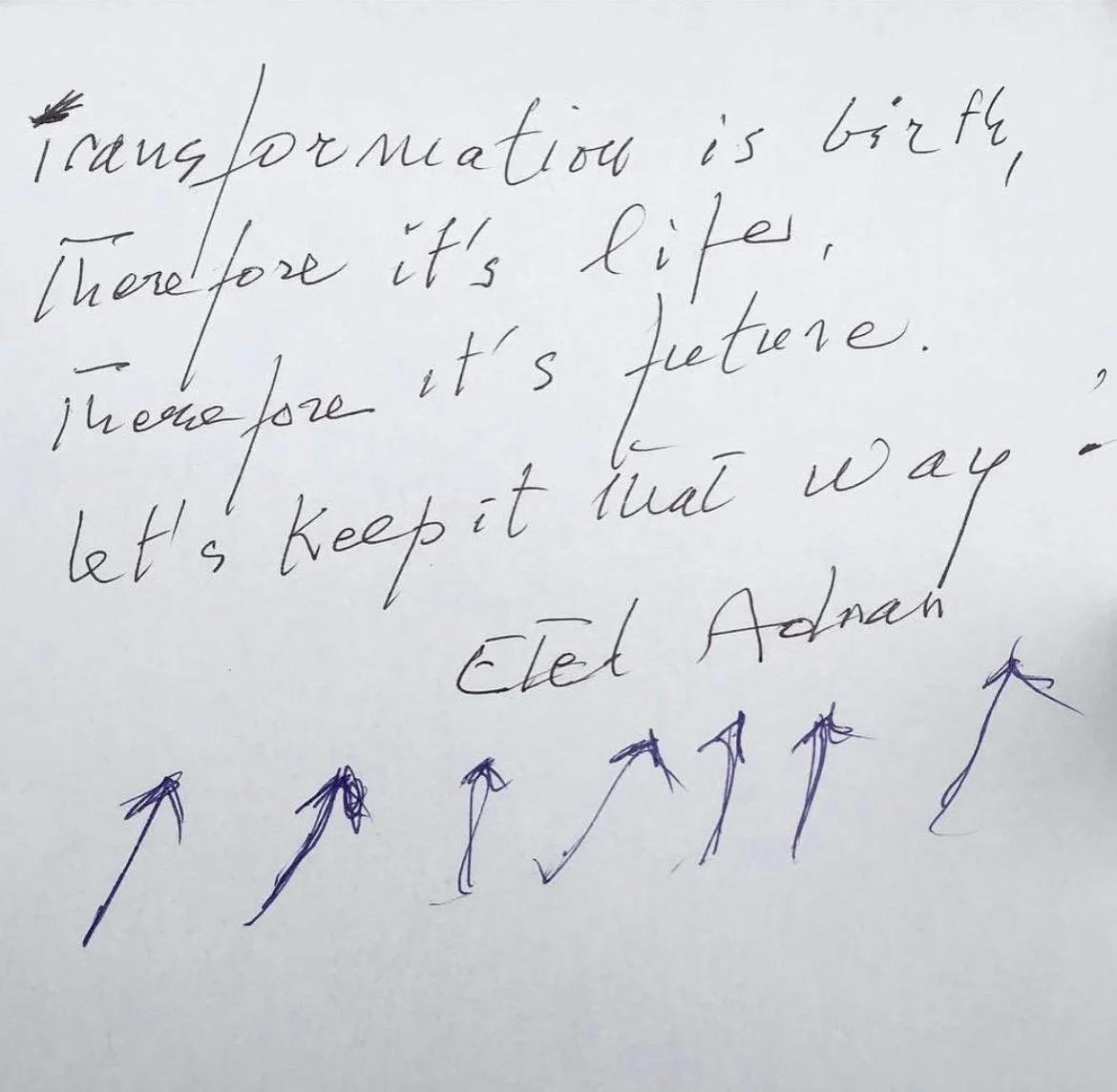Issue 005: Editor's Letter
Hans Ulrich Obrist, quoting Etel Adnan: “Transformation is birth, / Therefore it’s life, / Therefore it’s future. / let’s keep it that way”.
Dearest Reader,
We’ve come such a long way. The last time I wrote an editor’s letter, I was in Unaizah (my cute lil hometown with enough sunshine and breeze to fuel me for weeks), and I was, for the first time in so long, right where I should be. I think it’s so funny how Sumou’s themes often fall in line with my life throughout, and I might want to check the reason behind that. Sumou as a manifestation medium? Sounds like it.
When the team and I first brainstormed a theme for this issue, we thought it’d be fit to explore the margins of rebirth, decay, and transformation amid the pandem(onium)ic. By that time around, I was finishing up college, juggling an internship with a contractual project, doing some volunteer-work, getting published here and there, and applying for grad school. Finally securing a spot? Never did I think that would finally happen. I think I tried verbalizing this in some of my journals, after all what went down, but the feeling is so monumental and encompassing that it’s so hard to put into words. Sometimes, it doesn’t need to be written. It’s right in your chest.
This issue had been the hardest and longest to compile. The team and I always laugh about how Sumou keeps giving us full-circle moments, and I think that’s lovely. It makes me sit down and realize life is always in alignment; that in every action, there is a later reaction—no matter how random—that makes the chain grow longer. All this winds down to a few things: I became more inflectional, more determined to look inward and understand where my transformations are coming from; where they’re headed.
So many revolutionaries left us the past year: Etel Adnan, bell hooks, Eve Babitz, Joan Didion, and more. These are all too big shoes to fill. But I think there’s a glimmer of anticipation for whoever’s going to come next. The thing with art and creating is that there’s always going to be room for someone in the conversation. The work is still in progress. I remember seeing a post that said something like, “Artists are not athletes, we cannot beat other creatives. (...) Create to connect to the people who need you.” I think that’s very true! More than anything, we’re writing and creating as a form of survival. Stand on the shoulders of your revolutionaries and move from then.
I’ve also been thinking more about the concept of death lately. Mostly in the sense that it’s inescapable; as someone who believes in the afterlife, I’m always thinking about what awaits me right after. For the longest time, I viewed death and the afterlife as two different experiences. Deep down, I thought I’d just stop existing. That it’s a dissociative experience detaching the soul from its consciousness. Whatever happens in the afterlife, it’s impersonal; I’ll just be a wink in the universe, of someone that once was. There’s an odd comfort in that. But coming to realize that this isn’t my case, that I won’t stop existing then either…a lot of that scares me. Much of my understanding of it was abstract. I don’t think that’s the case anymore. Some might call this an existential crisis or whatever, but I think that’s what being aligned with your soul entails. That you’re on this Earth for a reason and the journey just doesn’t stop there.
Speaking of death and full-circle moments, some of our submissions for this issue happen to tackle themes of death and decay, and a lot of it is very personal, so please proceed with tenderness and care. Hoda Katebi, in her interview with the lovely Furqan Mohamed, talked brilliantly about the concept of the afterlife and what it means for the Muslim body, and I think a lot of it is reassuring. On the other hand, my conversation with Fariha Róisín showed me the lengths at which we can sacrifice parts of ourselves to arrive at where we’re supposed to be, so it’s not too bleak after all. Metaphorically speaking, I died a thousand times compiling this issue (LOL), it’s been a bittersweet journey seeing it in concrete (is the internet concrete?) form, and I hope it stands by you as you go through your own journeys of growth and decay.
This issue’s dedicated to Rania Dawud, our Opinion Editor, Tasneem Maher, our Fiction and Personal Essays Editor, and Zeina Jhaish, our Poetry and Prose Editor, without whom we would not be here today. There’s no Sumou without any of you.
Love, love, love,
Jood

